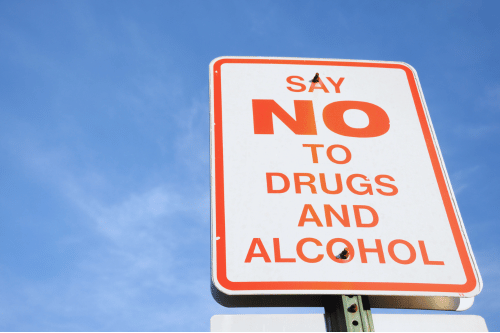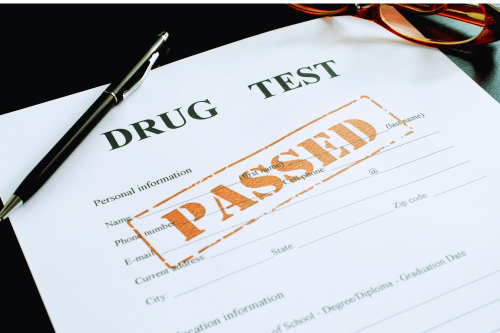

Many people searching for help with methamphetamine addiction often ask the same question: how long does it take to detox from meth? Meth detox is a critical first step in treating stimulant use disorder. While each patient is different, most experience drug withdrawal symptoms within 24 hours of last use, with acute symptoms peaking around 7 to 10 days.
Methamphetamine is a powerful central nervous system stimulant. It impacts the brain’s dopamine system and can cause intense cravings, mood swings, and a rapid decline in health. At Sullivan Recovery in Orange County, our meth detox programs are designed to help patients stabilize, reduce discomfort, and prevent relapse.
Meth detox refers to the period during which the body eliminates methamphetamine and its byproducts. During this phase, a person may feel physical and psychological symptoms of substance dependence. The severity often depends on how long and how often the person used the drug.
A medical detox can help manage withdrawal symptoms like insomnia, depression, nausea, perspiration, and paranoia. Detoxing from meth also carries risks related to mental health, including suicidal ideation, making supervision by a health professional vital.
So, how long does it take to detox from meth? For most people, meth detox begins within 6 to 12 hours of the last dose. Symptoms intensify over the next few days and start to ease after about 10 to 14 days. However, psychological effects like low motivation, mood instability, and cravings can last several weeks or months.
At Sullivan Recovery, we recognize that methamphetamine detox is not a one-size-fits-all process. Each patient receives an individualized evaluation from a licensed physician to determine the safest and most effective detox program.

The meth detox timeline generally includes three stages:
While the physical symptoms improve, emotional instability and impaired reward system function may linger. This is why Sullivan Recovery integrates therapy and medication support into our rehab approach.
There are no FDA-approved medications specifically for methamphetamine detox, but certain drugs can reduce withdrawal intensity. Common prescriptions include:
In some cases, a benzodiazepine may be used short-term to manage anxiety or paranoia under strict health care supervision. Sullivan Recovery works with licensed physicians and doctors of pharmacy to ensure safe medication management during detox.
The brain takes time to adjust after prolonged methamphetamine use. The damage to dopamine and serotonin systems can affect motivation, pleasure, and emotional control. Patients may struggle with depression, anxiety, and emotional numbness.
Many experience disrupted sleep, intense mood swings, and loss of appetite, which can increase the risk of relapse. The central nervous system remains overstimulated during early abstinence, often resulting in agitation, insomnia, and trouble concentrating. Some may also develop symptoms linked to substance dependence, including paranoia and cognitive fog.
Support from treatment centers like Sullivan Recovery helps patients rebuild healthy habits. Therapy, structure, and exercise are essential parts of managing post-acute withdrawal symptoms. We use interventions like selective serotonin reuptake inhibitors (SSRIs), fluoxetine, and bupropion to regulate mood and reduce cravings, as well as support overall health and stability during recovery.

Detoxification from methamphetamine should be done under medical supervision to ensure patient safety. Some people may develop suicidal thoughts, psychosis, or hallucinations. Others may experience severe stress, headaches, or vomiting.
Without proper care, symptoms like nausea, perspiration, and mental health deterioration can become overwhelming. Professional oversight from a licensed physician or health professional ensures that medication options—such as modafinil, mirtazapine, or even short-term benzodiazepine use—are managed safely. Our team also monitors for signs of co-occurring substance abuse, such as alcohol, fentanyl, or other amphetamine use, which can complicate detox.
Our meth detox program in Mission Viejo includes 24/7 monitoring, emotional support, and access to emergency care if needed. We also accept most health insurance plans to make medical detox more accessible. Each patient receives a full clinical evaluation and individualized care plan, helping reduce risk and improve outcomes in line with World Health Organization and American Addiction Centers guidelines.
Attempting to detox at home can lead to severe relapse or untreated medical complications. The World Health Organization and American Addiction Centers recommend detox in a structured facility to protect both physical dependence and mental health outcomes. Without clinical oversight, patients may face nausea, vomiting, insomnia, paranoia, or even seizures—especially with long-term methamphetamine or mixed drug use.
The risk of substance abuse restarting is high without supervision or support. Individuals may not be prepared to manage intense drug withdrawal, mood crashes, or dopamine system dysfunction, all of which impact motivation, appetite, and emotional control. Dangerous symptoms like perspiration, headache, and depression may go untreated, increasing the odds of returning to meth, alcohol, or other stimulant use disorders.
At Sullivan Recovery, we combine clinical oversight with therapy and holistic care to increase long-term sobriety. Our meth detox services include evaluation by a licensed health professional, access to medications like fluoxetine, mirtazapine, or bupropion, and evidence-based approaches like contingency management. Our outpatient model offers continued support after detox, helping you stay on track through structured programs, insured health care services, and personalized recovery goals.

Several factors can affect how long it takes to detox from meth, including:
We also consider mental health history and family support in our detox planning. Every patient at Sullivan Recovery undergoes a full evaluation to build a safe and effective plan.
After the body clears toxins, therapy helps the brain heal. Techniques like contingency management, CBT, and motivation building address triggers and unhealthy patterns. We also help patients develop new routines for sleep, nutrition, and stress relief.
Support groups and outpatient rehab keep patients connected and accountable. Our Orange County location makes attending therapy sessions easy and convenient.
Not all rehabs offer specialized programs for meth detox. At Sullivan Recovery, our outpatient services allow flexibility while still providing structure and accountability. We understand that recovery is a long-term process that requires more than just detox.
Our treatment center helps patients regain control through medical care, therapy, education, and relapse prevention strategies. We also help with insurance verification and accessibility to care.

Some patients want to know how long methamphetamine stays in the system. A standard drug test may detect meth in urine for up to 3–7 days after last use, depending on health, metabolism, and frequency of use. Blood and saliva tests have shorter detection windows, while hair tests can show amphetamine or meth usage for up to 90 days, reflecting long-term substance dependence.
Factors such as hydration, central nervous system activity, exercise, and co-use of other substances like alcohol or fentanyl can affect test results. Individuals undergoing medical detox or enrolled in a treatment center may also be tested to monitor sobriety and ensure abstinence. The Food and Drug Administration regulates many of these tests to ensure reliability and accuracy.
Even after testing negative, post-detox symptoms may persist, including insomnia, depression, mood swings, and cravings linked to disrupted dopamine and serotonin pathways. This is why ongoing outpatient care at Sullivan Recovery is critical, even when abstinence has started. Continuous support helps manage relapse risk, strengthen motivation, and maintain engagement in the detox program and extended rehab treatment.
Meth detox is only the beginning. Ongoing support helps manage:
Programs like those at Sullivan Recovery include therapy, family education, and relapse prevention to support long-term sobriety and reduce risk of recurrence.
So, how long does it take to detox from meth? For most people, acute withdrawal takes about 7 to 14 days. But full recovery takes longer—sometimes months or years. That’s why professional support is so important.
If you or a loved one needs help with methamphetamine addiction, contact Sullivan Recovery in Mission Viejo. Our outpatient detox and rehab programs are here to help, with licensed professionals and health care teams ready to guide your recovery.
Need help with meth addiction? Contact Sullivan Recovery today to learn more about our outpatient detox and treatment options. We accept most major health insurance providers and offer free consultations.
At Sullivan Recovery, as an in-network provider we work with most insurance plans, such as:
And More
If you or a loved one are struggling with mental health challenges or substance abuse, reach out to Sullivan Recovery today. Our team of compassionate professionals is here to support your journey towards lasting well-being. Give us a call at 949-836-7180.
While the body needs time to eliminate methamphetamine, some natural methods may support the process. Drinking water, engaging in exercise, eating nutrient-rich foods, and getting regular sleep can help your health during detox. However, these actions don’t shorten detox significantly and should never replace medical detox under a health professional.
Using meth during detox can reset withdrawal symptoms, worsen drug withdrawal effects, and raise the risk of relapse. It may also increase the danger of overdose due to reduced tolerance. That’s why it’s essential to detox in a treatment center with 24/7 supervision and emotional support.
Not every patient requires medication, but many benefit from it. Prescriptions like bupropion, mirtazapine, or modafinil can ease mood swings, insomnia, and depression. A licensed physician or doctor of pharmacy will determine if medication is right for your detox program.
Yes, long-term methamphetamine users may face more severe symptoms and a longer detox timeline due to deep central nervous system disruption. Chronic use affects dopamine levels and can lead to lasting issues with motivation, pleasure, and emotional balance. These patients often benefit most from structured, supervised rehab.